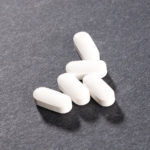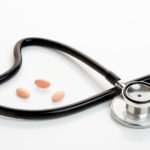By David Blyweiss, M.D., Advanced Natural Wellness
June 24, 2013
- Eating candy might be healthier than taking this…
- Would you sacrifice 982 lives to possibly save 18?
- Don’t let this drug steal YOUR life
I don’t think a day goes by when I don’t have at least one patient ask why I don’t have them taking a statin drug.
They tell me how their friend, wife, husband, sister, co-worker and everyone else they know are taking one. And they don’t want to be left out of the potential “health” benefits of popping their own pill each day.
I blame a lot of this on the television commercials and ads.
These advertisements literally tell people to ask their doctor about taking a statin. And physicians are responding by handing them out like candy.
The truth of the matter is candy is probably better for you. Sure, candy will give you cavities and diabetes. It might even pack on the pounds.
But that’s nothing compared to what statins will do to you.
In just the past few years, researchers have identified numerous health threats associated with this class of drugs.
- Diabetes: A 2010 meta-analysis of 13 trials showed statins were associated with a 9% increased risk of diabetes. And in 2012, a diabetes warning was placed on the label of all statin drugs.
- Peripheral neuropathy: People who use statin drugs are more prone to peripheral neuropathy. This is nerve damage often causing tingling and numbness in your extremities. In a 2012 study, statin use resulted in a 75% increase in relative risk of neuropathy.
- Memory loss: In February of 2012, the FDA finally acknowledged statins affect memory. New labeling changes require a warning about this. Here’s what it says. “Statins may increase the risk of brain-related effects like memory loss and confusion.”
- Cataracts: Last August researchers in the UK found statin drugs are associated with a 57% increase in the risk of cataracts. It also caused them to develop at a younger age.
- Hardening of the arteries: Another study released this past August had even more startling news. When people without coronary artery disease took statin drugs they had 54% higher odds of developing calcified coronary plaque. This is the type of plaque associated with “hardening of the arteries.”
And that’s just the beginning. These drugs can actually steal the energy from your heart!
MD Exposes the Hidden Danger to Your Eyes

When your eyesight starts to fail, it's a real problem. Suddenly you can't go to the grocery store... you can't get to the doctor if you have an emergency... you can't meet your friends for dinner…
Your "regular" doctor doesn't have time to keep up with the latest research. And the same goes for eye doctors. They go to school to learn how to fit you for glasses and contacts, but have no way of preventing the damage and loss of eyesight that threatens your freedom and independence.
Let me show you something that explains a LOT about how your eyes work.
In my FREE Special Report, I'll show you a HUGE, untapped resource for your eyes that safely and naturally restores clear, effortless eyesight.
Click here to get started...
Here’s something I’ll bet you’ll find interesting. A recent Cochrane study had some disturbing news.
Out of 1,000 people taking statin drugs for five years, only 18 of them will avoid a major cardiovascular event.
In other words, 1.8% of people would be helped. That leaves 98.2% of statin drug users faced with life-threatening side effects for no reason at all. And they are life-threatening.
While I talked about several of these side effects above, there’s one major hazard that warrants special notice.
Just a few months ago, a study out of Copenhagen discovered that as many as 75% of patients who take statins suffer from muscle pain.
If you’re really unlucky, it could result in a deadly form of muscle damage called rhabdomyolysis. This disease not only causes severe muscle pain. It can also lead to liver damage, kidney failure and death.
And while the companies that produce Lipitor, Crestor and other statin drugs would like to bury this side effect, there is absolutely no way to disguise the fact that your heart is a muscle.
Do you know what that means?
This class of drugs can cause direct injury the muscular tissue in your heart.
I hate to state the obvious. But when your muscle becomes damaged, your overall heart function decreases right along with it.
The reason for this problem is relatively simple. You see, while statins cause your liver to produce less cholesterol, they also rob your body of much-needed CoQ10.
CoQ10 fuels every muscle in your body with energy – including your heart. When statin drugs steal this critical nutrient from your body your heart can’t efficiently pump blood.
Are You Suffering From...
- Love handles and a pot belly
- Romance that isn't what it used to
- Forgetfulness and inattention
- Low (or no) strength and endurance
- A sex drive that's shifted into neutral...or worse
If so...you may have Mature Male Burnout. Click here to discover more about this unique condition and what you can do about it.
Essentially, statin drugs deplete the cellular energy your heart needs to for top-notch performance.
My job is to help you keep your heart pumping strong and hard throughout your lifetime. And taking a statin won’t help accomplish that.
Here’s what I recommend to my patients.
Controlling your cholesterol doesn’t require a drug that increases your risk of diabetes, nerve damage, memory loss, cataracts and hardening of the arteries.
And in no way, shape or form does it involve risking your heart health with a drug that actually damages your heart muscle.
Let’s get real and face the facts – without drugs.
Managing cholesterol levels and preventing cardiovascular disease is one of the easiest things you can do in your life. And accomplishing it on your own isn’t as hard as you think.
Here are my recommendations…
- Don’t be lazy about exercise. In today’s world, it’s very easy to make an excuse not to get your body moving. But it’s the number one thing you can do to improve your cholesterol levels.
According to the Mayo Clinic, you can increase good (HDL) cholesterol HDL by about 5% in only two months with brisk exercise. I suggest 30 minutes five times a week. And it doesn’t have to be hard. All you have to do is walk, run, swim or ride a bike to gain the benefits. The more intensity you add, the better off you will be.
- Go Mediterranean. A recent study shows that people who eat a Mediterranean diet high in olive oil and nuts can reduce the risk of a cardiovascular event by 28 to 30 percent. Just add about 1.7 ounces of olive oil a day to the foods you eat.
And it only takes about 30 grams of nuts each day to provide maximum protection for your heart. Try pecans, walnuts, Brazil nuts and pistachios.
- Supplement with policosanol and niacin. In studies, 10 to 20 mg of policosanol daily raises HDL cholesterol by 8% to 15%. It also reduces LDL by up to 29%. And niacin can increase HDL by as much as 35 percent. I recommend 20 mg. policosanol and 250 mg. of niacin.
- Don’t forget to take your CoQ10! If you are taking a statin drug, it’s absolutely ESSENTIAL to supplement with CoQ10. But I recommend it to everyone because it provides the cellular energy your heart, muscles and other organs need to function properly. Look for the most bio-available form available. It’s called “ubiquinol.” Just 100 mg. a day can protect and preserve your heart health.
It will also help if you eat include omega-3 rich fish in your diet, get plenty of high antioxidant fruits and veggies and reduce your intake of processed flours and sugars.
These changes aren’t hard. And the benefits far outweigh the damage your body – and your heart – may experience at the hands of harmful statin drugs.
References:
Sattar N, Preiss D, Murray HM, et al. Statins and risk of incident diabetes: a collaborative meta-analysis of randomised statin trials. Lancet. 2010 Feb 27;375(9716):735-42. Epub 2010 Feb 16.
Tierney EF, Thurman DJ, Beckles GL, Cadwell BL. The association of statin use with peripheral neuropathy in the US population 40 years of age or older. J Diabetes. 2012 Nov 1. [Epub ahead of print]
FDA Drug Safety Communication: Important safety label changes to cholesterol-lowering statin drugs. FDA. Feb 2012.
Machan CM, Hrynchak PK, Irving EL. Age-related cataract is associated with type 2 diabetes and statin use. Optom Vis Sci. 2012 Aug;89(8):1165-71.
Nakazato R, Gransar H, Berman DS, Cheng VY, et al. Statins use and coronary artery plaque composition: results from the International Multicenter CONFIRM Registry. Atherosclerosis. 2012 Nov;225(1):148-53. Epub 2012 Aug 24.
Taylor F, Huffman MD, Macedo AF, Moore THM, Burke M, Davey Smith G, Ward K, Ebrahim S. Statins for the primary prevention of cardiovascular disease. Cochrane Database of Systematic Reviews 2013, Issue 1
Rubinstein J, Aloka F, Abela GS. Statin therapy decreases myocardial function as evaluated via strain imaging. Clin Cardiol. 2009 Dec;32(12):684-9.
University of Copenhagen (2013, January 3). Cholesterol medicine affects energy production in muscles. ScienceDaily. Retrieved March 18, 2013, from http://www.sciencedaily.com¬ /releases/2013/01/130103114211.htm
Universitat de Barcelona (2013, February 25). Mediterranean diet helps cut risk of heart attack, stroke: Results of PREDIMED study presented. ScienceDaily. Retrieved February 28, 2013, from http://www.sciencedaily.com¬
Gouni-Berthold I, Berthold HK. Policosanol: clinical pharmacology and therapeutic significance of a new lipid-lowering agent. Am Heart J. 2002 Feb;143(2):356-65






